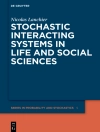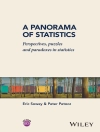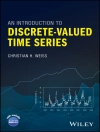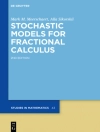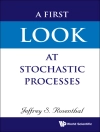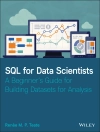This book discusses recent advances and research in applied mathematics, statistics and their applications in computing. It features papers presented at the fourth conference in the series organized at the Indian Institute of Technology (Banaras Hindu University), Varanasi, India, on 9 – 11 January 2018 on areas of current interest, including operations research, soft computing, applied mathematical modelling, cryptology, and security analysis. The conference has emerged as a powerful forum, bringing together leading academic scientists, experts from industry, and researchers and offering a venue to discuss, interact and collaborate to stimulate the advancement of mathematics and its applications in computer science.
The education of future consumers, users, producers, developers and researchers of mathematics and its applications is an important challenge in modern society, and as such, mathematics and its application in computer science are of vital significance to all spectrums of the community, as well as to mathematicians and computing professionals across different educational levels and disciplines. With contributions by leading international experts, this book motivates and creates interest among young researchers.
Tabela de Conteúdo
Chapter 1. Constructions and Embeddings of Hamilton Decompositions of Families of Graphs.-
Chapter 2. On Strong Pseudomonotone and Strong Quasimonotone Maps.-
Chapter 3 . A dynamic non-preemptive priority queueing model with two types of customers.-
Chapter 4. Iθ -statistical convergence of weight g in topological groups.-
Chapter 5. On the integral-balance solvability of the nonlinear Mullins model.-
Chapter 6. Optimal Control of Rigidity Parameter of Elastic Inclusions in Composite Plate with a Crack.-
Chapter 7. Convergence of generalized Mann type of iterates to common fixed point.-
Chapter 8. Bohr’s inequalities for harmonic mappings and beyond.-
Chapter 9. Geometric degree reduction of Bezier curves.-
Chapter 10. Numerical study on the influence of diffused soft layer in p H regulated polyelectrolyte coated nanopore.-
Chapter 11. Quadruple Fixed Point Theorem For Partially Ordered Metric Space With Application To Integral Equations.-
Chapter 12. Enhanced Prediction for Pieozophilic Protein by incor-porating Reduced Set of Amino Acids using Fuzzy-Rough Feature Selection technique followed by SMOTE.-
Chapter 13. Effect of upper and lower moving wall on mixed convection of Cu-water nanofluid in an square enclosure with non-uniform heating.-
Chapter 14 . On Love wave frequency under the influence of linearly varying shear moduli, initial stress and density of orthotropic half space.-
Chapter 15. The problem of oblique scattering by a thin vertical submerged plate in deep water-Revisited.-
Chapter 16. A note on necessary condition for $L^p$ multipliers with power weights.-
Chapter 17. On M/G(a, b)/1/N queue with batch size and queue length dependent service.-
Chapter 18. A fuzzy random continuous ($Q, r, L$) inventory model involving controllable back-order rate and variable lead- time with imprecise chance constraint.-
Chapter 19. Estimation of the location parameter of the general half-normal distribution.-
Chapter 20. Existance of equilibrium solution of the coagulation-fragmentation equation with linear fragmentation kernel.-
Chapter 21. Explicit Criteria for Stability of Two-Dimensional Fractional Nabla Difference Systems.-
Chapter 22. Discrete Legendre collocation methods for Fredholm-Hammerstein integral equations with weakly singular kernel.-
Chapter 23. Norm inequalities involving upper bounds for operators in Orlicz-Taylor sequence spaces.-
Chapter 24. A Study on Fuzzy Triangle and Fuzzy Trigonometric Properties.-
Chapter 25. An extension Asymptotically $/lambda$- Statistical Equivalent Sequences via Ideals.-
Chapter 26. Fuzzy Goal Programing Approach for Resource Allocation in a NGO Operation.-
Chapter 27. Stoichio Simulation of Facsp From Graph Transformations To Differential Equations.-
Chapter 28. Fully Dynamic Group Signature Scheme with Member registration and Verifier-local Revocation.-
Chapter 29. Second Hankel Determinant for a Class of Alpha-Close-to-Convex Functions.-
Chapter 30. Fourier-based Function Secret Sharing with General Access Structure.-
Chapter 31. Multiple Handed Hexagonal Tile Assembly Model on Interactive Systems.-
Chapter 32 . A uniformly convergent NIPG method for a singularly perturbed system of reaction-diffusion boundary-value problems.-
Chapter 33. Efficient Numerical Methods for Linear Reaction-Diffusion System.-
Chapter 34 . Comparison of two methods based on Daubechies scale functions and Legendre multiwavelets for approximate solution of Cauchy type singular integral equation on R.
Sobre o autor
DEBDAS GHOSH is an assistant professor at the Department of Mathematical Sciences, Indian Institute of Technology (Banaras Hindu University), Varanasi, India. He has completed his Ph D in mathematics from the Indian Institute of Technology (IIT) Kharagpur in 2014. His research interests include convex optimization, numerical optimization and optimization under uncertainty.DEBASIS GIRI is a professor at the Department of Computer Science and Engineering, Haldia Institute of Technology, India. His topics of interest are discrete mathematics, cryptography, information security, coding theory, advanced algorithms, design and analysis of algorithms, network security, security in wireless sensor networks, security in VANETs, and formal languages and automata theory. Professor Giri has delivered several talks and guest lectures at various universities and conferences. He is the supervisor of three Ph D research scholars, as well as he has guided many B.Tech. and M.Tech. students. Heis associate editor of the
Journal of Security and Communication Networks (Wiley) and the
Journal of Electrical and Computer Engineering Innovations. Further, he is editorial board member and reviewer for many reputed international journals. He is also program committee member of many international conferences. He is a life member of Cryptology Research Society of India. He received his Ph D on “Cryptanalysis and improvement of protocols for digital signature, smart card authentication and access control” from IIT Kharagpur. He also did his M.Tech. and M.Sc. from IIT Kharagpur. He secured the 10th position in all India rank with percentile score 98.42 in the Graduate Aptitude Test in Engineering (GATE) examination in 1999. Professor Giri has published more than 30 technical papers in several international journals and proceedings.
RAM N. MOHAPATRA is a professor of mathematics at the University of Central Florida, Orlando, USA. He received his Ph Ddegree from the University of Jabalpur, India, in 1968. Earlier, he taught at Sambalpur University in India, American University in Beirut, Lebanon, University of Alberta, and York University, Canada, prior to coming to Orlando. His area of research is mathematical analysis, and he is the author of two books, two edited monographs and over 168 research papers. He referees articles for professional journals and serves as a member of editorial board of a number of journals.KOUICHI SAKURAI is a professor at the Faculty of Information Science and Electrical Engineering, Kyushu University, Japan. He is concurrently working with the Institute of Systems & Information Technologies and Nanotechnologies, as the chief of Information Security Laboratory, for promoting research cooperation among the industry, university and government under the theme ‘Enhancing IT-security in social systems’. He has established research cooperation in the field of information security with Prof. Bimal Kumar Roy (the former director of Indian Statistical Institute, Kolkata, India). The first time Japan has partnered with the Cryptology Research Society of India (CRSI). Professor Sakurai has published more than 250 academic papers in cryptography and information security.
EKREM SAVAS is a professor at the Department of Mathematics, Faculty of Science and Letters, Istanbul Commerce University, Turkey. In 2004, he received the American Honor Medal Award from the American Biographical Institute for his work in the field. He has published 2 books and over 280 international scientific publications, out of which 190 papers are published in SCI-indexed journals.
TANMOY SOM is a professor at the Department of Mathematical Sciences, Indian Institute of Technology (Banaras Hindu University), Varanasi, India. He completed his Ph D from Institute of Technology, Banaras Hindu University, India in 1986. He has successfully guided over 11 Ph D students and published over 100 papers and several book chapters in reputed national and international journals, proceedings and edited books. He is editorial board member and reviewer of few reputed journals. He has delivered several invited talks at national and international conferences/seminars/refresher courses etc. His research interests are in functional analysis, optimization and mathematical modelling, fuzzy set theory, soft computing and image processing.






